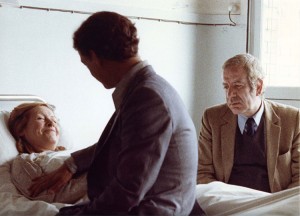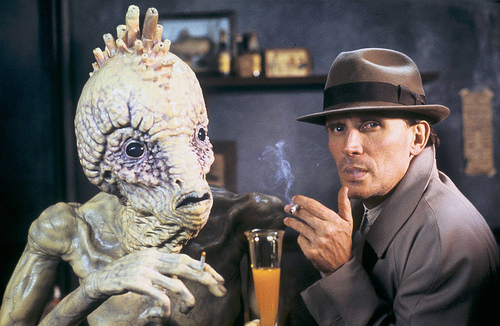La Gueule Ouverte
From Oui (October 1974). — J.R.
La Gueule Ouverte. A 5O-year-old Frenchwoman named Monique (Monique Melinand) is dying of a painful disease. She gradually loses the ability to communicate with any ease, and finally the power to speak at all. Eventually she’s moved from the hospital to the family’s house in Auvergne, where her husband Roger (Hubert Deschamps), along with her son Philippe (Philippe Leotard) and his wife Nathalie (Nathalie Baye), take care of her and wait for her to die. It’s a painful and less-than-inviting subject for a film, but somehow Maurice Pialat works wonders with it. Too recognizable and embarrassing to be strictly sentimental and too inventive and observant to be predictable. his story moves like a string of terse epiphanies, beautifully recorded by Nestor Almendros’s camera. The characters are neither bigger nor smaller than life: Roger is a drunken grouch whose idea of kicks is to cop a feel from a pretty girl while she changes sweaters in his clothing shop, yet he is the one most affected by Monique’s death. Philippe screws Nathalie and then goes hunting up prostitutes in his desperate flight from the fact of death. Father and son don’t like each other much, and when Philippe and Nathalie drive away at dusk– an extraordinary extended shot that encapsulates a lifetime into a few miles — we can be confident that they won’t be coming back again. Read more


